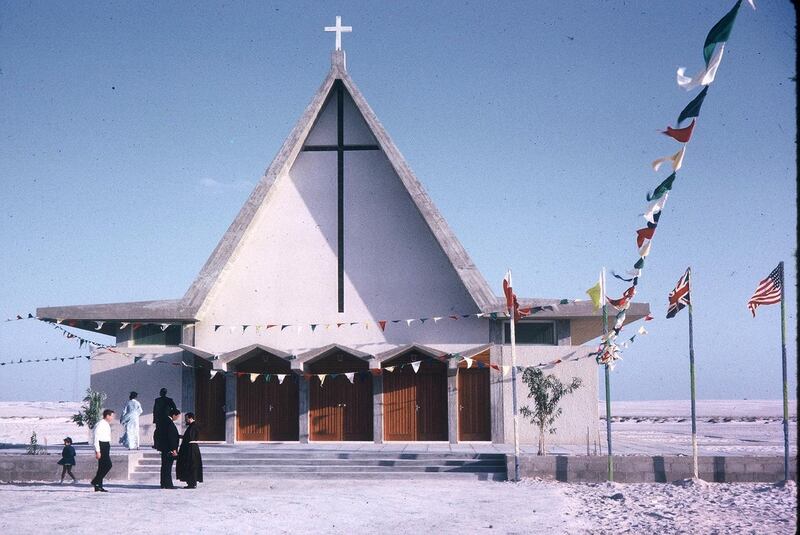Pope Francis is to pay a private visit to St Joseph’s Cathedral in Abu Dhabi on Tuesday morning to bless a small number of Catholics during his visit to the capital.
But why St Joseph’s and what is he planning to do there?
St Joseph’s is the seat of the Apostolic Vicar of Southern Arabia, which includes the UAE, Yemen and Oman, headed by Bishop Paul Hinder.
It was the first Catholic church to open in what is now the UAE on the Corniche in 1965. Sheikh Shakhbut, then Ruler of Abu Dhabi, was donated the land for it and was present at the inauguration.
The church moved to Al Mushrif in 1983 to land donated by Sheikh Zayed, where it stands today. It is host to an impressive 80,000 to 90,000 parishioners and performs services in Malayalam from India’s Kerala, Tagalog from the Philippines, Urdu, French, German and even Korean.
According to a statement from Gandolf Wild, Secretary to Bishop Paul Hinder, Apostolic Vicar of Southern Arabia, Pope Francis will make a private visit between 9.15am and 9.45am on Tuesday, February 5.
He will have 15 minutes to spend with around 300 parishioners from “all walks of life and social standing” who have been specially selected to pray with and be blessed by him.
Among them are families with disabled children, elderly worshippers who require care and cannot come to weekly Mass and some lesser privileged migrant workers.
“Pope Francis is often spontaneous and does things unexpectedly, he may personally greet anyone present there who catches his attention,” the statement said.
He will the leave to celebrate a Mass for 135,000 people at Zayed Sports City Stadium at 10.30am the same day.
There are around one million Catholics in the UAE, many of them from India and the Philippines, and nine Catholic churches, including ones in Mussaffah, Jebel Ali and Al Ain.








